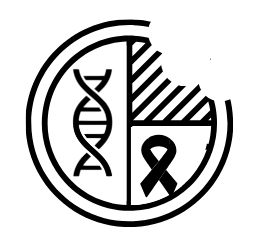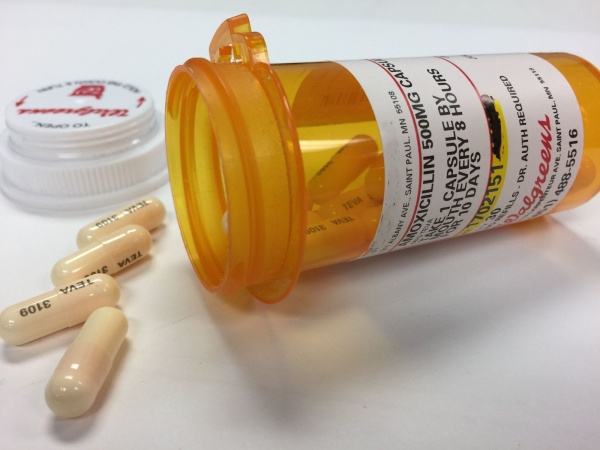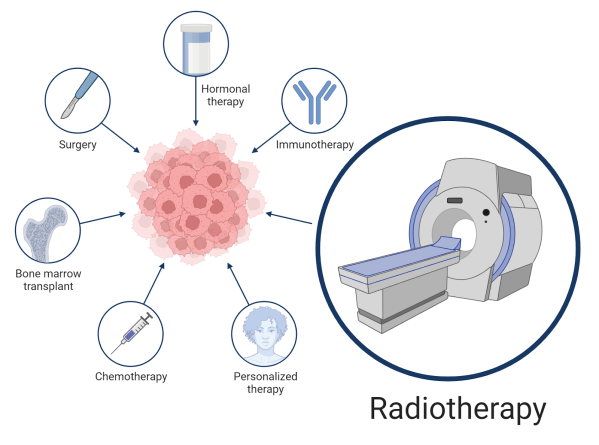Reading time: 3 minutes Yonika Larasati Since the advent of antibiotics more than one century ago, this class of drugs has tremendously changed humanity. In addition to treating bacteria-caused infectious diseases, antibiotics enable modern medical procedures, such as open-heart surgery and organ transplantation. Antibiotics are also essential for cancer patients. Cancer patients often face an... Continue Reading →
The Hidden Aftermath of Chemo-Radiation Therapy
Reading time: 5 minutes Nisitha Sengottuvel Cancer incites fear because of how sick it can make you and how deadly it can be. Even when cancer treatments succeed in curing a patient, the patient is still left with the aftermath of the cancer treatments. A good example of a cancer that has relatively good prognosis... Continue Reading →
Improving Prediction of Cardiovascular Disease After Childhood Cancer
Reading time: 4 minutes Clare Meernik 84% of children who are diagnosed with cancer today can expect to live for at least 5 years after their diagnosis. Though the prognosis is favorable for the majority of children--and much improved from a 5-year survival rate of 58% in the mid-1970s--the long-term adverse effects of some cancer... Continue Reading →
Cancer’s Sweet Tooth Can Lead to its Downfall
Reading time: 5 minutes Michael Marand The term cancer research may invoke images of scientists with grand ideas mixing this or that until the next groundbreaking treatment avenue is uncovered. Indeed, discovering new therapeutic approaches has been an important factor in the progress made in the cancer research sphere. However, it is perhaps even more... Continue Reading →
Female Fertility Challenges After Cancer
Clare Meernik Reading time: 4 minutes Fatigue. Hair loss. Loss of appetite, nausea, or vomiting. Constipation or diarrhea. Pain. Easy bruising. Bleeding. All common side effects of chemotherapy. Now, imagine you are a 25-year old woman, newly diagnosed with cancer--unsure if and when you may want to have children--and your oncologist tells you about another... Continue Reading →
Connections between the gut and the brain: the key to reducing pain after chemotherapy?
Reading time: 5 minutes Kate Secombe Chemotherapy-induced peripheral neuropathy (CIPN) is a relatively common side-effect of some types of chemotherapy, affecting between 19 to 85% of people. It refers to a few different conditions involving damage to the peripheral nervous system. The peripheral nervous system sends signals back to the central nervous system (brain and... Continue Reading →
CDK4/6 Kinase Inhibitors: Limiting Chemotherapy Toxicity
Reading time: 5 minutes Chris Wang Chemotherapy is a mainstay of cancer treatment, yet many times it is temporarily withheld or stopped due to significant toxicity. This is because chemotherapy drugs cannot differentiate between killing cancer cells and killing fast growing healthy cells, such as cells in your bone marrow. These cells divide quickly because... Continue Reading →
Risk of Infection in Cancer Patients: Life in the Time of Coronavirus
Reading time: 3 minutes Manisit Das It is a scary and anxious moment for many of us, and if you are on the internet, it is hard to miss updates about the latest coronavirus disease, COVID-19. The viral disease is characterized by flu-like symptoms and may cause respiratory infections in certain individuals, was declared a... Continue Reading →
Mitochondria: the Canary in the Coal Mine
Reading time: 3 minutes Alex S. Woodell The tale of the canary in the coal mine dates back to 1911, when British miners began carrying caged canaries with them underground as a means of detecting toxic gases. The idea of using canaries as an early indicator is credited to John Scott Haldane, a Scottish physiologist... Continue Reading →
Cisplatin: a journey to a solution for triple-negative breast cancer
Tushar Date Estimated Reading time: 4 minutes Cisplatin is an old, platinum based anticancer drug that kills cancer cells by damaging their DNA. Its cytotoxic (cell-killing) properties were discovered by accident in the 1960s, when Barnett Rosenberg was performing experiments to analyse the effect of electric field on bacterial growth. He observed that bacterial proliferation... Continue Reading →
Ulcers after Cancer Therapy – New Directions
Reading time: 5 minutes Kate Secombe Cancer treatment- it’s not fun! The treatment can take hours in the hospital, it makes you feel fatigued and has a range of difficult side-effects, including nausea, vomiting, hair loss, and memory problems. But today, I want to focus on one, in particular, mucositis, and look at the research... Continue Reading →
Listen to me!
When patients volunteer to participate in a clinical trial, their voices should be heard. Reading time: 7 minutes Patty Spears A recent study (Nyrop et. al. 2019) looked at how clinicians and patients reported numbness and tingling in the patient’s hands and feet (peripheral neuropathy) after getting chemotherapy for breast cancer. They call this chemotherapy... Continue Reading →
Evolution of chemotherapy: A look back in time
Reading time: 5 minutes Payal Yokota Chemotherapy (chemo) can be prescribed alone and in combination with other therapies such as surgery, radiation, and immunotherapies (ie. vaccines, checkpoint blockade, etc). Since its discovery, the chemo field has greatly advanced, both in its development and ability to treat cancers. While surgery and radiation act locally to remove... Continue Reading →
Reducing chemo side effects by soaking up excess drug
Reading time: 4 minutes Morgan McSweeney A research team from UC Berkeley, UCSF, and UNC Chapel Hill has developed a new strategy to prevent unwanted side effects of toxic chemotherapy drugs. Often, choosing a dose of chemotherapy has to be balanced between how effective it will be at killing tumor cells and how toxic it... Continue Reading →
New frontiers in breast cancer management
Tamara Vital Over the last several decades, the survival rate for most kinds of breast cancer have increased due to earlier detection, new targeted therapies, and combination treatment modalities. As we’ve discussed before at Oncobites, cancer is not a single disease. It turns out that multiple distinct subtypes exist even within the category of “breast... Continue Reading →















